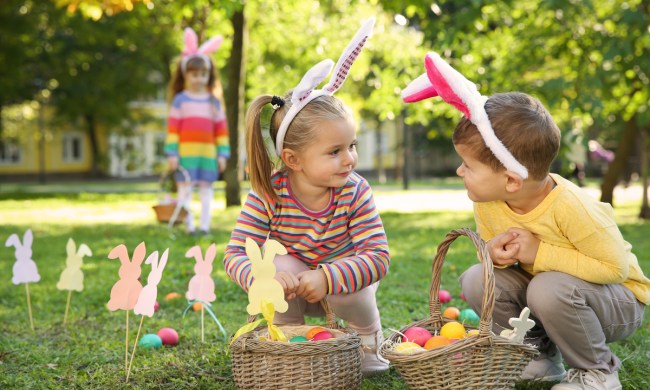The toddler years are full of development and discovery. Naturally, all those new experiences can be a bit overwhelming for them at times. Toddlers don’t always know how to process their emotions which can often lead to some behaviors you may find troubling. They can become frustrated as they try to process all this new information. They don’t call them the “terrible twos” for nothing!
While temper tantrums and meltdowns come hand in hand with having a toddler, there are other behaviors that may be a sign that they’re not quite feeling like themselves. If your toddler is pulling their own hair, it may be because they feel out of control, which can be completely understandable. Toddlers pulling their hair is a very common behavior and is often a form of self-soothing that helps them cope with stressful situations. If you’ve noticed your toddler has begun to pull their hair, there are some things you can do to help.
Is it normal for toddlers to pull their hair?
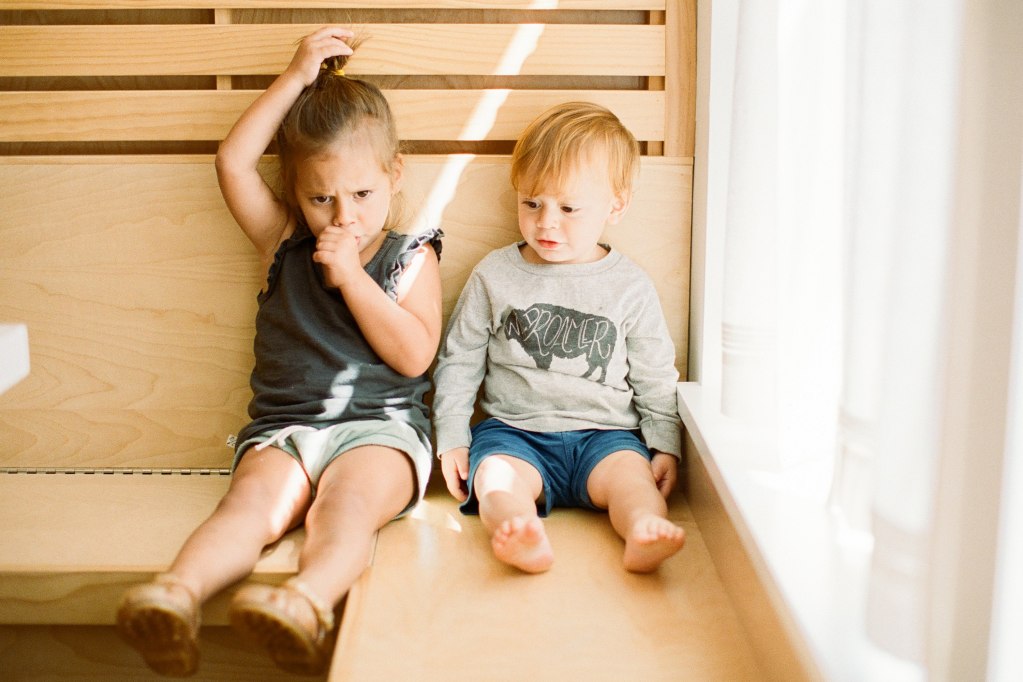
For many toddlers, pulling their hair, twirling their hair, or simply playing with their hair is a pretty common experience, especially during times when they may seem stressed or are looking for some form of comfort. For many, there’s a fascination with the discovery of a new texture, and twirling or pulling their hair may be as comforting as sucking their thumb.
As Kids+ Pediatrics notes, most toddlers outgrow the habit of pulling and twirling their hair typically by the age of 3 or 4. However, hair pulling can also be a sign of trichotillomania, or trich, for short, which is a disorder characterized by the pulling of hair. According to the Child Mind Institute, trich can result in children having the uncontrollable urge to pull their hair without them even realizing they’re doing it.
How do I stop my 2-year-old from pulling their hair?
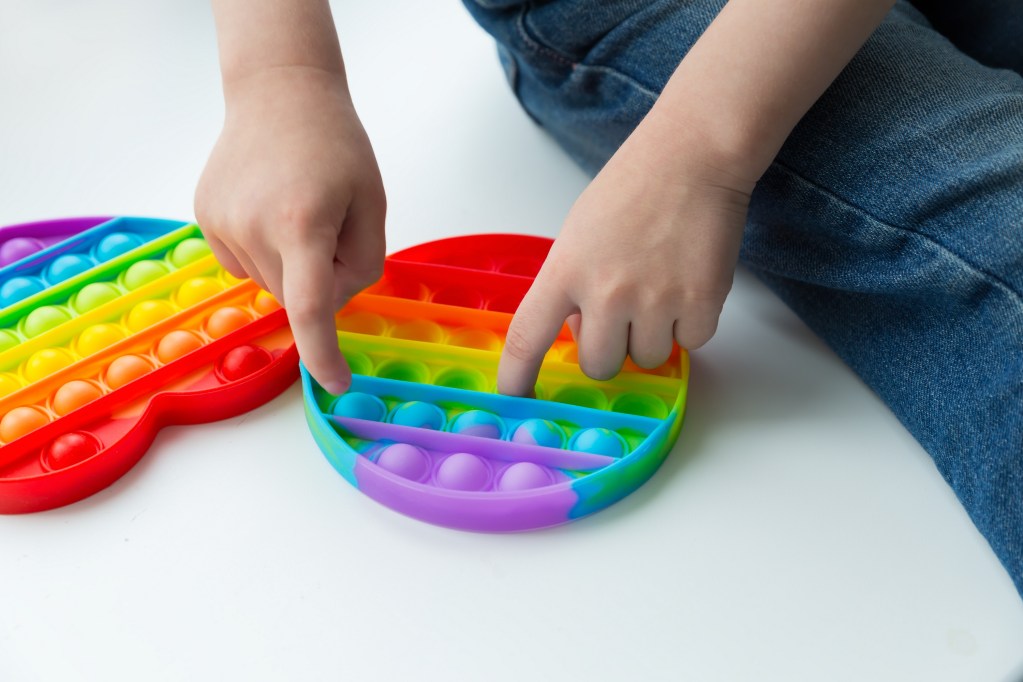
It can be hard to watch your toddler pull their own hair, but experts have some suggestions on how to help curb the behavior. BabyCenter writes that some experts may recommend a form of cognitive therapy that can include limiting your child’s ability to actually pull their hair while also providing a different form of comfort, like a stuffed animal or ribbon to play with.
Kids+ Pediatrics recommends parents try to make note of when their child is pulling their hair. Is it normally when they’re sleepy or bored, or has there been some stress, like the arrival of a new sibling or a new daycare setting that may have caused the hair-pulling? If that’s the case, maybe a bit more attention and cuddles can help curb the behavior.
Knowing when a toddler is more likely to pull their hair can help parents proactively distract from the behavior or substitute a different item to give them the sensory stimulation they may need. The TLC Foundation for Body-Focused Repetitive Behaviors suggests using small gloves or character Band-Aids on the toddler’s thumbs to help limit their ability to pull their hair while also giving them something fun and colorful to look at.
How do you discipline a toddler who pulls hair?
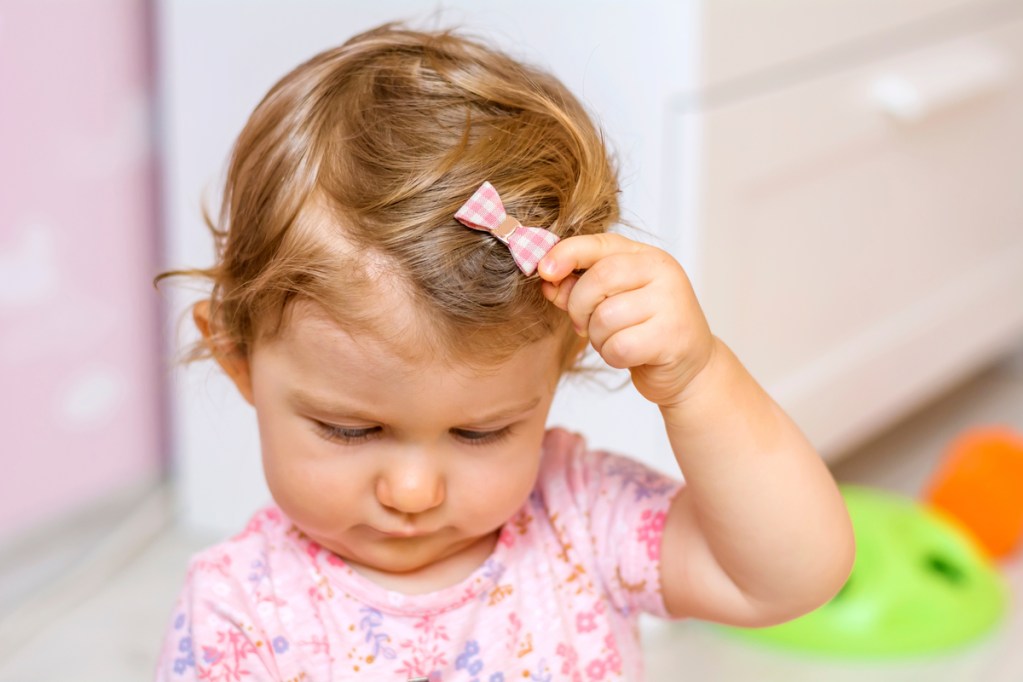
It’s important not to shame or scold your toddler for pulling their hair. Instead, experts suggest trying to divert their attention or distract them. Psychotherapist Lucia Wallis Smith specializes in the treatment of anxiety and discussed with PopSugar some ways she was able to help her own daughter. “In our experience, it worked to replace the hair pulling with another activity, such as using a fidget or stress ball,” she said. “We also discussed the hair pulling with our daughter without shaming her — just labeling it a habit she could replace with something that would still be calming and wouldn’t change her appearance so drastically.”
Amy Nasamran, Ph.D., licensed child psychologist and founder of Atlas Psychology, also explained to PopSugar that you may not want to call too much attention to the behavior. “Instead, teach a healthier coping skill, like taking a break or going outside for deep breaths. Then reward your toddler for making choices other than hair pulling when they’re frustrated.”
How do I stop my child from pulling her hair?
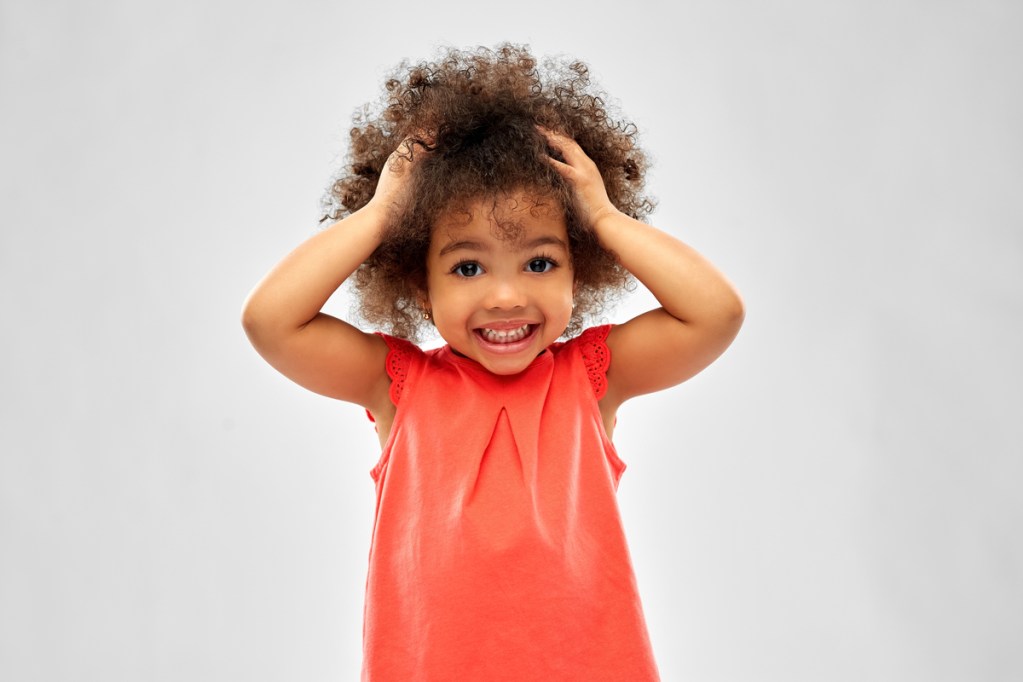
Many toddlers will outgrow the habit of pulling their hair, while others can get help with some form of cognitive therapy. BabyCenter warns trich is often misdiagnosed as a form of obsessive-compulsive disorder (OCD), but it’s not. Trich is treatable without medication, while OCD is often helped with the use of medication.
The experts at Trichstop suggest parents tell their children they would like them to stop hair-pulling. Parents should observe their children for a week, tracking the times when they are most likely to pull their hair. This can help parents be proactive in curbing hair pulling by providing distractions or removing them from situations that may trigger hair pulling. It also suggests giving toddlers fidget toys or other soothing objects to help keep their hands busy. Cutting your child’s hair short or having her wear a hat can help make your toddler aware of her behavior as well.
What to look for
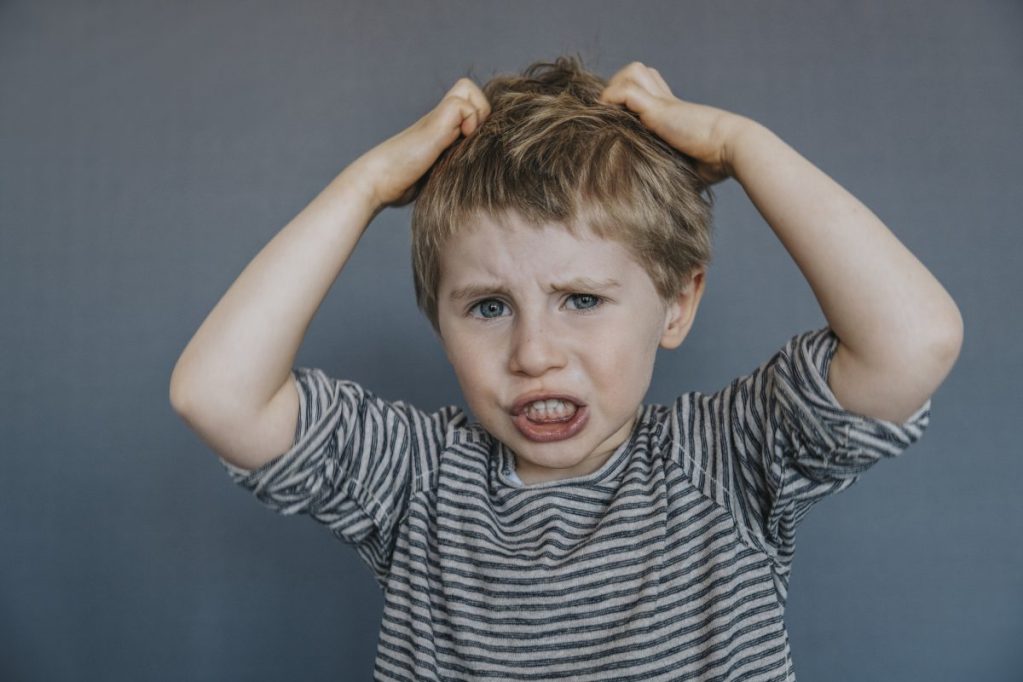
You may not always notice that your child is hair-pulling, especially younger children and infants who may tend to pull their hair while in their crib or bed. What to Expect suggests that common symptoms of hair-pulling include:
- Uneven hair loss, bald patches, or sudden hair loss
- Finding lots of hair in your child’s room, crib, or bed
- Constantly having her hands in her hair or near her head
Although trichotillomania is more common in children over the age of 12, younger children can be impacted by it. According to Child Mind Institute, the following behaviors may be a sign of trichotillomania:
- Uneven or one-sided hair loss
- Suddenly losing a lot of hair
- A lot of hair on the floor or pillows in the child’s room
- Constantly holding their hands near their head
- Wearing hats or other cover-ups because they don’t want others to see their bald spots
- Constantly looking in the mirror
- Low self-esteem
- Feeling ashamed about what they look like or because they can’t stop pulling out hair
When to see a doctor

Your child can be pulling out their hair without even realizing they’re doing it. Experts note that this is often found in children who have been diagnosed with ADHD and is often a way some children deal with stress or anxiety. If you notice your child has been pulling out their hair reach out to your pediatrician.
You’ll want to avoid shaming or criticizing your child for this behavior and offer as much support and patience as possible. Early intervention can help your child manage their condition and stop altogether. Medication is rarely a treatment, instead opting for behavioral and mental health therapy.
Hair pulling can be very normal behavior, but if your efforts to curb the behavior aren’t successful and your toddler is pulling hair from her eyelids, eyebrows, and other parts of her body, it may be time to consult your pediatrician.




